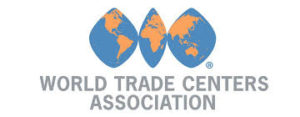
By Scott Ferguson
As Chief Executive Officer of an organization with a mission of growing trade, I often get asked a multitude of questions pertaining to the state of global commerce. The inquiries always revolve around the latest headline out of one country or another, or the most recent election, or just my take on the state of economic cooperation around the world.
But no matter the question my answer always stays the same: At the World Trade Centers Association (WTCA) we remain focused on one thing—our network.
This may seem selfish, or like we don’t care about the news. But this is not the case. Far from it. It is because the common thread that runs through our association of 300-plus members in nearly 100 countries, is stronger and more consequential than any one lurch in the ever-changing, seesawing nature of trade policy. Because our members often play a critical role in the local, regional and national economies where they are based, the WTCA and its membership roster are frequently in a position to bridge the divides that form from one administration to the next. Our relationships with one another are the bedrock of our organization. This network empowers each of us to continue to enrich our local communities, regardless of the coming or receding political storms.
Being a global organization made up of businesses as diverse as our members comes with challenges, for certain. But being able to call on fellow World Trade Centers from Bogota to Belfast, and Boston to Beijing, in a climate that often feels unstable, is the true value of WTCA Membership. And it is why now, more than ever, relationships matter.
Scott Ferguson is Chief Executive Officer of the World Trade Centers Association.
This article was originally published in the USA Trade Guide.


